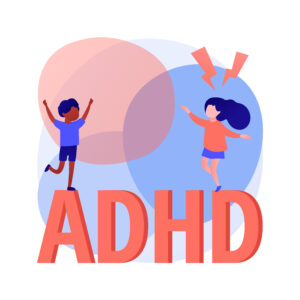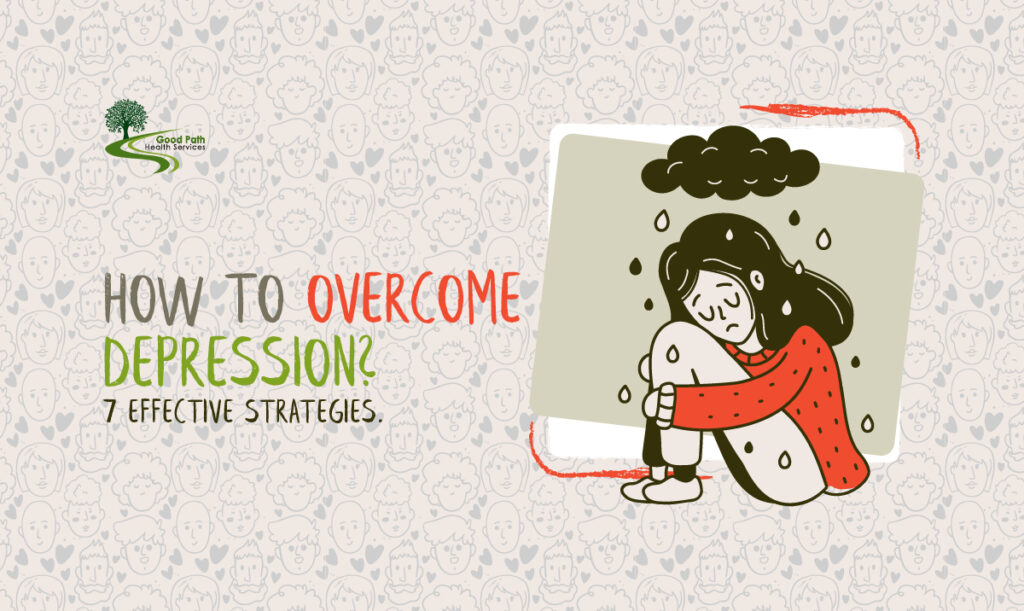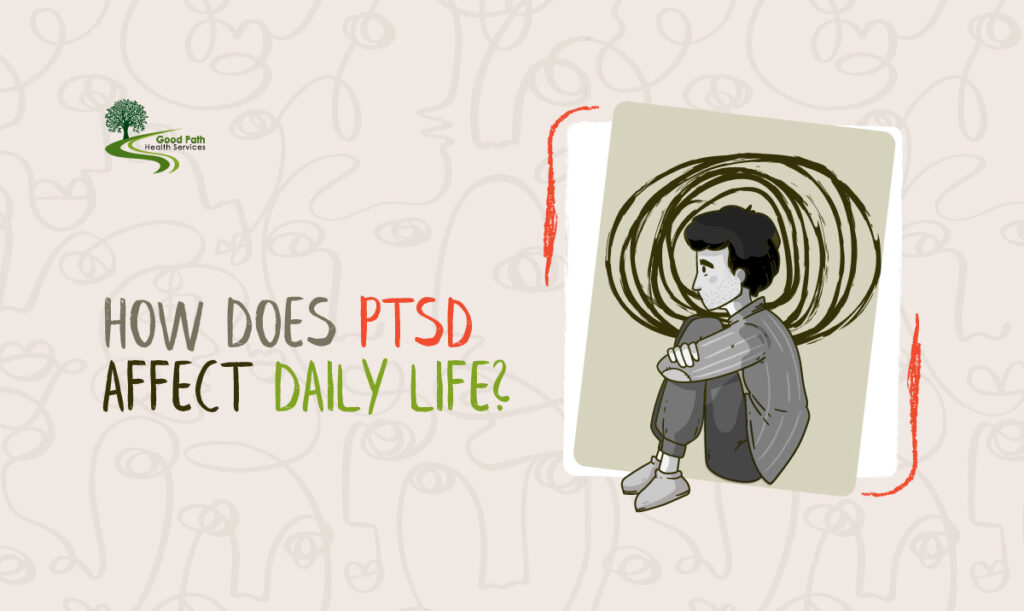
Attention-Deficit/Hyperactivity Disorder (ADHD) is a neurodevelopmental disorder. It affects people of all ages.
ADHD can end up having a major impact on life in general – which makes it important to get an appropriate diagnosis and treatment.
An important question is: how to get diagnosed for ADHD?
In this guide, we’ll walk you through the process to get diagnosed for ADHD.
We’ll also share helpful information and resources for people and concerned parents.
Getting to Know ADHD

ADHD is a complicated condition — it is linked with difficulties with attention, hyperactivity, and impulsivity.
Early diagnosis for ADHD is necessary, because it allows timely treatment and proper management.
Understanding the process of diagnosis and finding professional help can be helpful in supporting those with ADHD.
Prior to starting the diagnostic process, it’s important to have a thorough understanding of ADHD.
ADHD can show in different forms and can be broken down into three types.
Let’s discuss the common symptoms and signs associated with each type.
This will provide a basis for recognizing ADHD in yourself or your loved ones.
1.Predominantly inattentive.
This type is defined mainly by inattention and distractibility without much hyperactivity.
People with this type might find it hard to:
- Finish tasks.
- Follow conversations or instructions.
- Keep track of personal items.
They may also be easily distracted by unrelated thoughts or stimuli.
2.Predominantly hyperactive-impulsive.
People with the Predominantly Hyperactive-Impulsive type show signs of hyperactivity and feel the need to move a lot.
They might also make impulsive decisions without thinking through the consequences.
This can cause difficulties in school or work environments where they are expected to stay still or focus for long periods of time.
3. A combined type.
The Combined type is frequent and has both inattentive and hyperactive-impulsive symptoms.
People with this type of ADHD often struggle with:
- Paying attention.
- Controlling impulses.
- Excessive activity levels.
It’s a blend of everything found in the other two types.
Related: A Radical Guide for Women With ADHD
How to Get Diagnosed for ADHD? – The Need for Professional Help
To get diagnosed for ADHD, these are the steps.
- The initial step in getting diagnosed is consulting with a healthcare professional with expertise in ADHD – this could be a psychologist, psychiatrist, a psychiatric nurse practitioner or a general practitioner with experience in ADHD. They will outline all the steps to get a diagnosis.
- The professional will carry out a thorough assessment, such as understanding your symptoms, medical history, and gathering information from other sources like parents or teachers — this comprehensive evaluation will consider if the symptoms are long-standing and impairing, and if they are related to another condition.
- Professionals use a number of tests/screenings to diagnose ADHD. These can be rating scales, psychological tests, and even brain imaging studies in some cases.
- Diagnosis. If your assessment shows that ADHD symptoms are present, the professional will then determine the type of ADHD (Inattentive, Hyperactive-Impulsive, or Combined).
Getting a proper diagnosis requires the expertise of healthcare professionals who specialize in ADHD.
At Good Path Health Services, we have professionals who can help you with ADHD diagnosis.
If you suspect you might have ADHD symptoms, please contact us.
Getting timely diagnosis and treatment can help you manage ADHD in the long run.
Treatment Options for ADHD
Once a diagnosis has been made, appropriate treatment options can be explored.
These can be:
- Medication. Medications – like stimulants, non-stimulants, and antidepressants, are usually used to help regulate brain activity in patients with ADHD. They are usually most effective when combined with behavioral therapy.
- Behavioral therapy. Therapy can include cognitive-behavioral therapy and other forms of therapy that helps people develop coping mechanisms, increase self-esteem, and improve social and communication skills.
- Getting daily movement in, plenty of sleep, and a balanced diet can improve ADHD symptoms. Mindfulness and yoga can also be beneficial when it comes to managing stress and concentrating.
- Support groups. Support groups for ADHD can provide emotional assistance, practical advice, and a sense of belonging.
- Educational support. Special educational services can help children with ADHD achieve their educational goals through custom strategies.
According to your diagnosis, we’ll discuss treatment options with you.
A personalized treatment program can help relieve symptoms and improve life quality.
Related: How to Manage ADHD Without Medication?
Common Misdiagnoses and Co-occurring Conditions
Mistaken diagnoses and co-occurring conditions can complicate the diagnostic process.
During your evaluation, we will address the conditions that can be mistaken for ADHD as well as the ways in which other conditions can cause similar symptoms.
We intend to make sure there’s never any misdiagnoses.
Check Out Some Helpful Resources
For further support, we have compiled a list of resources and readings:
- “Driven to Distraction” by Edward M. Hallowell and John J. Ratey: A book that provides information about ADHD, its impact, and management strategies.
- ADDitude Magazine: An online resource that provides advice, community support, and news about ADHD.
- Centers for Disease Control and Prevention (CDC) | ADHD: Provides detailed information on ADHD, including symptoms, diagnosis, and treatment.
- National Institute of Mental Health (NIMH) | ADHD: Provides extensive information on ADHD, including the latest research and statistics.
- American Psychological Association (APA) | ADHD: Features resources for finding psychologists and therapies for ADHD.
Finding ADHD Testing Near Me
To find ADHD testing near you, try these options:
- Psychiatrists and psychologists. Try to find a psychiatrist or one of the therapists for ADHD in your local area. You can look for directories of professionals on authoritative websites like the American Psychological Association’s Psychologist Locator.
- Healthcare centers and clinics. Many healthcare centers and clinics perform ADHD testing. Websites such as HealthGrades and Zocdoc can help you find nearby providers.
- Schools and universities. Undiagnosed ADHD in college students is quite common. If you’re a student, your school or university’s health center can provide ADHD testing or be able to refer you to a professional who does.
- Online search. You can use search engines like Google to find ADHD testing in your area by typing “ADHD testing near me,” “Adult ADHD testing near me” or “ADHD assessment near me” into the search bar.
If you’re in need of telehealth services, Good Path Services provides telehealth so you can get an assessment and a virtual ADHD diagnosis.
Please make an appointment for an initial evaluation today.
Taking Action
Early diagnosis is a major step in the management of ADHD.
An accurate diagnosis opens doors to appropriate treatment options, resulting in a more fulfilling and successful future.
If you suspect ADHD in yourself or in someone close to you, don’t hesitate to take action.
Reach out to healthcare professionals specializing in ADHD, advocate for proper assessment, and learn about resources.
Contact us at Good Path Health Services today to learn more about ADHD diagnosis and treatment.
FAQs
Can a nurse practitioner diagnose ADHD?
Yes, nurse practitioners (NPs) can diagnose ADHD.
NPs are licensed registered nurses who have undergone additional training and education, thereby allowing them to perform physician-related duties.
They can assess patients, diagnose various conditions including ADHD, and provide treatment plans.
Where can I find ADHD therapists near me?
Online portals like Psychology Today, Zocdoc and Healthgrades offer directories of therapists by specialty and location.
Simply search for ‘ADHD therapists’ in your location.
What are some good ADHD affirmations?
ADHD affirmations are positive statements that can help manage ADHD symptoms. Examples include:
- I am more than my ADHD.
- I am capable and can handle whatever comes my way.
- My ADHD does not define me.
What are some natural ways to increase dopamine ADHD?
Natural methods to increase dopamine, the “feel-good” neurotransmitter, include:
- Physical exercise.
- A diet high in protein and fruits.
- Getting enough sleep.
Whenever you decide to make a huge change in your lifestyle, talk with a healthcare professional first.
How can I understand the relationship between ADHD and codependency?
ADHD people often find themselves in codependent relationships because of their need for structure and support.
Therapy or counseling can be used to recognize these patterns of dependency.
How to talk to your doctor about ADHD in adults?
Be clear and honest about your symptoms and how they’re affecting your daily life. You might find it helpful to write your thoughts down beforehand.
What does a nursing diagnosis for ADHD entail?
A nursing diagnosis for ADHD is a clinical evaluation of a person’s health status in relation to ADHD.
What are some useful ADHD productivity tools?
●Calendars.
●Task management apps.
●Timers.
●Note-taking tools.
●ADHD cleaning checklist.
●Creating an ADHD digital planner.
These can be helpful.
Examples include Todoist, Evernote, and Google Calendar



